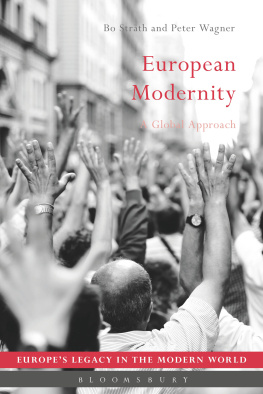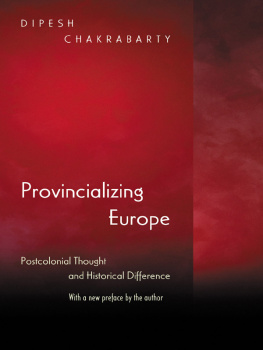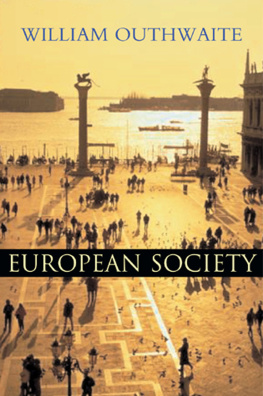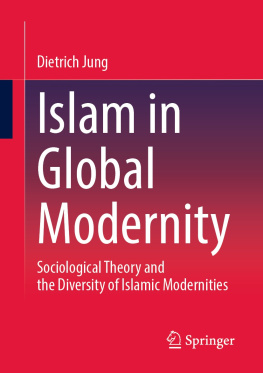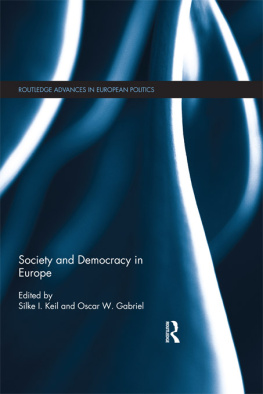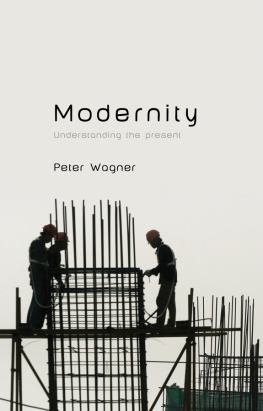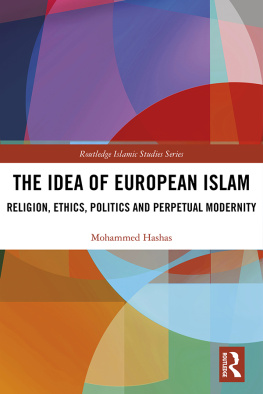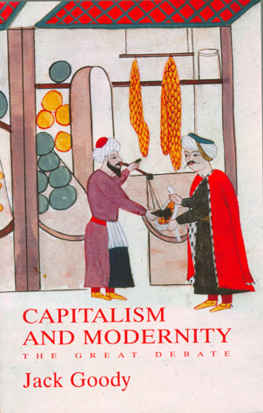European
Modernity
Europes Legacy in the Modern World
Series Editors: Martti Koskenniemi and Bo Strth (University of Helsinki, Finland)
The nineteenth century is often described as Europes century. This series aims to explore the truth of this claim. It views Europe as a global actor and offers insights into its role in ordering the world, creating community and providing welfare in the nineteenth century and beyond. Volumes in the series investigate tensions between the national and the global, welfare and warfare, property and poverty. They look at how notions like democracy, populism and totalitarianism came to be intertwined and how this legacy persists in the present day world.
The series emphasizes the entanglements between the legal, the political and the economic, and employs techniques and methodologies from the history of legal, political and economic thought, the history of events, and structural history. The result is a collection of works that shed new light on the role that Europes intellectual history has played in the development of the modern world.
Published:
Historical Teleologies in the Modern World, edited by Henning Trper, Dipesh Chakrabarty and Sanjay Subrahmanyam
Europes Utopias of Peace, Bo Strth
Forthcoming:
Political Reform in the Ottoman and Russian Empires, Adrian Brisku
Social Difference in Nineteenth-Century Spanish America: An Intellectual History, Francisco A. Ortega

CONTENTS
At the beginning of this century, the authors of this book were both working at the European University Institute (EUI) in Florence, in the Departments of History and Civilization and of Political and Social Sciences respectively, organizing seminars and workshops on the modernity of Europe together with doctoral researchers and colleagues. It was a time of intense debate about the future shape of Europe with the introduction of the Euro as common currency, the drafting of a Constitution for the European Union and the accession of several East European countries to the EU. Europeanization was a key sub-concept in the great globalization narrative that was then hegemonic. But it was disputed what Europeanization meant in relation to globalization. Did it signal that Europe was getting ready for a global self-propelling market society? Or was Europe trying to define a particular place within the transforming globe, a place in which and from which alternative courses of action could be developed? This was a moment for reflecting anew about the time-honoured theme of European modernity. The common view held that modernity originated in Europe and diffused from there across the globe. But in the early twenty-first century it seemed as if a global modernity had arisen that was to overwhelm any specificity of Europe.
Clearly, the way in which European modernity was embedded in a global context had to be rethought. On the one hand, Europe had to be provincialized, to use Dipesh Chakrabartys felicitous term. But on the other hand, themes from the history of European modernity had to be retrieved to enable us to see the current global context as more than just a world market emancipated from any political agency. In one part of our work, we were looking for a perspective which emphasized the political embedding of the market and the political responsibility for the economy, as opposed to the standard view of the time in which a borderless market economy transcended political borders escaping control. With our colleague in the Law Department of EUI, Christian Joerges, we organized the research project The Economy as a Polity, funded by the Research Council of the Institute to organize workshops which gave us important impulses and resulted in a publication under the same title in which we argued for a new perspective on the connection between political and economic matters, questioning the prevailing hegemony of market autonomy. We are grateful to Christian Joerges and the participants in the workshops for our discussions on the economy as a polity. In parallel, we worked on numerous other aspects of European modernity and its transformations. References to the results of this work can be found throughout this book. At the same time, we had the ambition to elaborate a synthesis from these years of work in common. This is the background to this volume, of which we wrote a first outline almost ten years ago. But we did not then succeed in weaving together the numerous threads.
After our time at EUI, we continued our discussions and developed our thoughts and our research further within the framework of two European Research Council (ERC) Advanced Grant projects at the Universities of Helsinki (EReRe; grant no. 229700) and Barcelona (TRAMOD; grant no. 249438) respectively. We are grateful to ERC for the generous funding that made it possible for us to deepen our historical and sociological understanding of European modernity, in particular with regard to revisiting Europes transformations during the nineteenth century, in the centre of EReRe, and with regard to comparing non-European and European varieties of modernity, in the centre of TRAMOD. We would also like to express our thanks to the members of the EReRe and TRAMOD research groups whose observations and comments have helped us to develop our analysis.
This second period of work fell into the time after the collapse of the global financial markets in 2008 and the subsequent fast erosion of the globalization narrative. An alternative view on the global context of European modernity, in contrast to the globalization rhetoric of the 1990s, became both more necessary and more plausible. Due to our parallel work on the ERC projects and due to the change in circumstances, our view on European modernity in historical perspective acquired a more distinct profile. We had always been critical of the influential perspective that sees modernity as the consequence of some intrinsic force within Europe, the combined effect of Enlightenment philosophy and the French and industrial revolutions accomplishing the modernization project as a model for the world. But now it became possible to spell out an alternative view in much more specific terms. Connecting to new research results and perspectives on Europe in the world by Kenneth Pomeranz, Christopher Bayly, Jrgen Osterhammel and others we discerned the European take-off much more in terms of exploitation of global resources such as African slaves and American soil which provided possibilities for politics of both warfare and welfare. The shape of Europes modernity came from without as much as from within and it was politically created for good and for evil, ambiguous and contradictory. Modernization and globalization then look very different than in the standard narrative, as we hope to demonstrate on the following pages.
We elaborated the ideas and conducted the research for this book in close co-operation during our common time in Florence and again in intense exchange over the past two years. All chapters have been jointly designed, developed and repeatedly discussed. But we also think that texts written by committees often lose the sense of engagement conveyable in personal writing. Thus, the reader will recognize two voices being in dialogue throughout this book, responding to each other and persistently generating new questions in the responses.
Torrita di Siena and Barcelona, July 2016
Bo Strth Peter Wagner
Modernity is less European and Europe is less modern than we have for too long been used to thinking: this is what this book aims to show.

